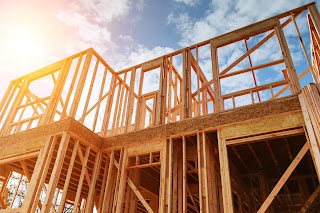Dispelling Concerns about Rapid Urban Expansion and Connections
A social media poster from Republic recently put this provocative statement online: Republic is growing too fast; prove me wrong.
Despite the obvious problems with his logic and argumentation and the fact that he cannot prove it is a problem but wants others to prove a negative, I am still glad to provide some feedback.
The notion of rapid urban growth often conjures images of congestion, environmental degradation, and social upheaval. While it's true that burgeoning towns face challenges, framing growth solely as a detriment oversimplifies a multifaceted phenomenon.
Contrary to the assertion that "this town is growing too fast," it's imperative to recognize the manifold benefits and opportunities accompanying expansion.
First, rapid growth fosters economic vitality. As populations swell, demand for goods and services escalates, creating fertile ground for entrepreneurship and job creation. New businesses emerge, attracting investment and driving innovation. The influx of residents amplifies consumer spending, stimulating local economies and bolstering tax revenues. Consequently, municipalities gain resources to improve infrastructure, healthcare, education, and other essential services, enhancing residents' quality of life.
For example, Republic is now correcting some issues that have existed for 20 or 30 years but in the past, the city did not have the resources to address (sewer system and number of law enforcement officers).
Moreover, expanding populations facilitate cultural enrichment and diversity. People from varied backgrounds become vibrant hubs of creativity and exchange. Diverse communities offer opportunities for cross-cultural understanding, enriching social fabric and fostering tolerance. Through exposure to different perspectives, residents cultivate empathy and broaden their horizons, contributing to a more inclusive society.
Critics of rapid growth often raise environmental concerns, citing strain on natural resources and increased pollution. However, sustainable urban planning can mitigate these challenges. Cities can accommodate growth while prioritizing eco-friendly infrastructure. Strategic land use policies promote compact development. Advancements in technology offer solutions for environmental stewardship, from smart waste management to urban agriculture initiatives.
Rapid expansion presents opportunities for social progress and community development. As populations burgeon, so too does the demand for affordable housing, prompting initiatives to address housing affordability and homelessness. Community engagement flourishes as residents unite to shape their shared future, advocating for equitable policies and fostering civic pride. Enhanced physical and digital connectivity facilitates collaboration and collective action, empowering citizens to address common challenges and effect positive change.
Another issue with this question is the poster often says Republic is losing its small town feel. The small-town feel is really about connections and influence. As a town grows, some people used to making all the decisions get displaced. That can be a good thing. However, we all have individual power to control the connection issue. Get up off the couch and start making connections today. Get to know your neighbors. Go to community events. Have a positive influence in the town, all of which lead to connections and the feeling of a small town.
Despite what some are saying, no one wants Republic to stop growing. That is not one of the options. The two options are grow or die. There is no middle road.
The assertion that "this town is growing too fast" oversimplifies a complex phenomenon and overlooks the myriad benefits of urban expansion. While challenges undoubtedly arise, proactive planning and innovative solutions can transform rapid growth into a catalyst for prosperity, sustainability, and social cohesion. By embracing growth with foresight and adaptability, communities can harness its transformative potential to build a brighter future for all residents.
MORE INFORMATION
Does this article make you interested in taking the Engaged Neighbor pledge? Five categories and 20 principles to guide you toward becoming an engaged neighbor. Sign the pledge online at http://engagedneighbor.com.
Contact the blog author, David L. Burton at dburton541@yahoo.com.





Comments
Post a Comment